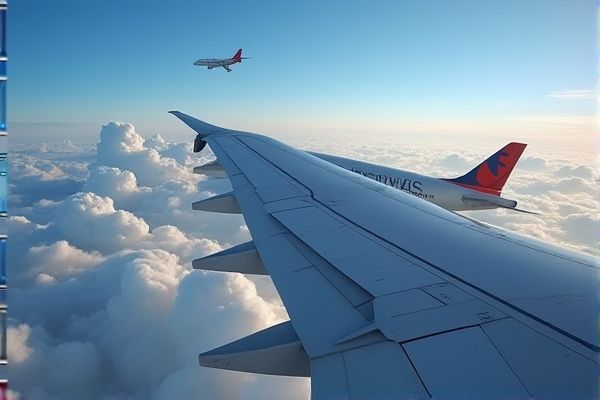
The aviation industry in the Philippines is experiencing significant growth, leading to a variety of job opportunities across multiple sectors. Airlines, airport operations, maintenance, and aviation management positions are in high demand. Skilled professionals such as pilots, aircraft mechanics, air traffic controllers, and aviation safety experts find ample prospects, especially with the increasing number of flights and expanding airport facilities. Obtaining relevant certifications and degrees can enhance your competitiveness in this thriving job market.
Job Description
Aviation jobs in the Philippines encompass a wide range of roles, including pilots, air traffic controllers, aviation mechanics, and ground crew. These positions require varying levels of education and training, often with specialized certifications to ensure safety and operational efficiency. The Philippine aviation sector continues to grow, driven by increasing travel demand and expanding airline services. Pursuing a career in this field offers opportunities for professional development and the chance to be part of a dynamic industry that plays a crucial role in the country's economy.
Requirement
Aviation jobs in the Philippines require specific qualifications that vary by position. For example, pilots need to hold a valid commercial pilot license with necessary hours of flight experience. Aircraft maintenance professionals must obtain relevant certifications in aviation technology and demonstrate proficiency in repairs and inspections. Familiarizing yourself with the local regulations and industry standards can enhance your prospects in this booming sector.
Salary and Perks Expected
Aviation jobs in the Philippines offer competitive salaries that vary depending on the specific role and level of experience. Entry-level positions, such as cabin crew, typically start around PHP 20,000 to PHP 30,000 per month, while experienced pilots and aviation engineers can earn upwards of PHP 100,000 monthly. In addition to base salaries, various perks are common in the industry, including travel allowances, health benefits, and opportunities for career advancement. Understanding these financial aspects can help you make informed decisions about pursuing a career in the aviation sector in the Philippines.
Similar Job Names
- Airline Pilot
- Co-Pilot
- Air Traffic Controller
- Flight Attendant
- Aircraft Maintenance Engineer
- Avionics Technician
- Ground Operations Staff
- Ramp Agent
- Cargo Handler
- Aviation Safety Inspector
- Flight Dispatcher
- Travel Consultant
- Airport Security Personnel
- Aircraft Sales Executive
- Aviation Operations Manager
- Pilot Training Instructor
- Flight Operations Officer
- Maintenance Planner
- Simulation Technician
- Aviation Regulatory Affairs Specialist
Job Expectation Concept
The job expectations in the aviation sector in the Philippines are shaped by a dynamic industry that demands skilled professionals. Opportunities range from pilot positions to roles in air traffic control, maintenance, and ground services. Employers typically seek candidates with relevant certifications and a strong understanding of safety regulations, reflecting the country's commitment to maintaining high aviation standards. Your ability to adapt to emerging technologies and navigate challenges in a busy air transport environment will significantly influence your career prospects in this growing field.
Career Advantage and Weakness
Aviation jobs in the Philippines offer diverse career opportunities, benefiting from the country's strategic location in Southeast Asia and the growth of its travel and tourism sector. High demand for skilled professionals in airlines, maintenance, and air traffic control presents a significant advantage for job seekers. However, challenges like fluctuating airline performance and economic downturns can create job instability in the industry. Understanding these dynamics can help you navigate your career path effectively, maximizing opportunities while being aware of potential vulnerabilities.
Important Thing Must Know
Aviation jobs in the Philippines offer a range of opportunities across various sectors, including commercial airlines, cargo services, maintenance and repair, and airport operations. The country's strategic location in Southeast Asia and its growing tourism industry have led to an increasing demand for skilled professionals in aviation. You can explore roles such as pilots, air traffic controllers, engineers, and ground staff, each requiring specific training and certifications. The Civil Aviation Authority of the Philippines regulates these qualifications, ensuring that employees meet safety and operational standards. Pursuing a career in aviation can provide not only financial rewards but also the chance to be part of a dynamic and evolving industry.
Alternative Career Options
The aviation industry in the Philippines offers various alternative career paths beyond traditional pilot and flight attendant roles. Opportunities exist in air traffic control, where you ensure the safe and efficient movement of aircraft. Ground operations positions, such as airport management and baggage handling, provide essential support for airline functions. Additionally, careers in aviation maintenance and engineering are vital for the upkeep of aircraft safety and technology.
Companies List
- Philippine Airlines
- Cebu Pacific Air
- AirAsia Philippines
- Philippine Air Force
- Aviation Security Command
- Mactan-Cebu International Airport Authority
- Clark International Airport Corporation
- Philippines Air Traffic Management Center
- Air Maintenance and Engineering Services, Inc.
- PAL Express
List of Ideal City
Davao City stands out for its expanding aviation sector, offering a range of opportunities in airline operations and maintenance. Clark Freeport Zone, with its proximity to Clark International Airport, provides numerous positions in both commercial and cargo aviation sectors. Cebu City boasts an increasing number of aviation training centers, which enhances your opportunities for education and career advancement in this industry. Manila, as the capital, serves as a hub for major airlines, making it a key location for various aviation-related roles.
 jobs-philippines.com
jobs-philippines.com